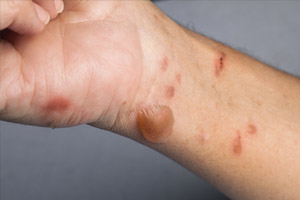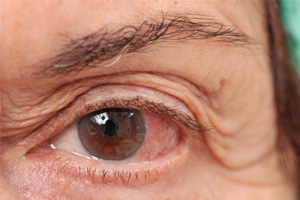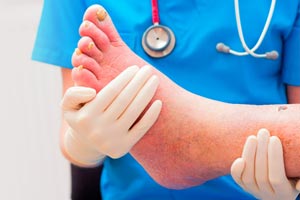I believe that virtually anyone can achieve good health and longevity by following holistic lifestyle strategies. Consuming a balanced, whole food diet, getting enough high-quality sleep, including a well-rounded exercise routine in your daily schedule, and effectively managing your stress – all these can help you stay physically and mentally healthy.
But there are instances when you just cannot avoid falling victim to certain illnesses. A malfunctioning immune system, hormone imbalances, genetic and/or environmental factors, and exposure to harmful organisms can subject you to health problems.
However, there’s a lot of information (and misinformation) out there on different ailments, and many people often become confused on which advice they should follow.
This is why I created this directory of some of the most prevalent illnesses that affect people today. Get to know their symptoms, causes and risk factors, natural treatment and pain relief options, and how you can protect yourself from these diseases.
I invite you to browse these articles, so that you may safeguard your well-being and stay disease-free. Get informed today!

The word “anxiety” is often associated with feelings of nervousness that arise because of challenging or potentially life-changing events.

Any abdominal pain, especially if it’s persistent, extremely debilitating and occurs suddenly, is worrisome, as it may be a sign that you have appendicitis. But what exactly is this condition and why do people fall victim to it?

One common misconception about bacterial vaginosis is that it can be transmitted through sexual intercourse. But this is not the case, as women who are not sexually active can also fall victim to this infection. So why does vaginitis occur and what are the risk factors involved? Read these articles and learn the basic facts about this health problem.

Know more about Bell’s palsy, from its causes to treatments you can follow. With this guide, you can learn how to face any potential challenges caused by Bell’s palsy.

Having bronchitis means that these passageways are swollen or inflamed. The patient eventually finds it difficult to breathe in air and oxygen into the lungs, and develops high amounts of mucus or phlegm in these airways.

Canker sores are one of the most common health problems concerning the mouth, and chances are you’ve already had them several times throughout your life. Despite their prevalence, canker sores are actually easy to prevent. Learn different methods of protecting your mouth for long-lasting oral comfort.

Celiac disease is defined as an autoimmune condition wherein patients experience a reaction in the small intestine after consuming products with gluten. If left untreated, celiac disease may trigger life-threatening complications among adults and children.

Don't confuse it with cellulites, which are the unsightly, dimple-like fat deposits that form on your buttocks and thighs. Cellulitis is actually a more dangerous condition that requires your immediate attention. But how exactly does it start and what can you do to avoid it? Read these articles and discover everything you need to know about cellulitis.

Chlamydia is a sexually transmitted infection that can affect both males and females. Common symptoms for both sexes include a burning feeling while urinating, rectal pain, and dyspareunia (painful sexual intercourse). Read here to learn the best methods to treat chlamydia symptoms, and prevent it from spreading to others.

An inflammatory bowel disease that wreaks havoc on your gastrointestinal tract, Crohn’s disease can lead to unpleasant symptoms, such as diarrhea and abdominal discomfort. Although it’s a chronic condition that you’ll have to deal with throughout your life, there are ways to effectively manage Crohn’s disease flare-ups. Read these articles to learn how you can deal with this illness.

Cystic fibrosis (CF) is a genetic disease that is characterized by unnaturally thick and sticky mucus buildup that can harm the body’s organs, particularly the lungs and pancreas. If not diagnosed early or managed properly, cystic fibrosis can hamper a person’s quality of life and even lead to early death.

Depression is a widespread global problem, with an estimated 350 million people dealing with this severe mood disorder today. Even in developed, industrialized countries, depression is rampant.

Find out what fuels the diabetes epidemic today – and simple diet and lifestyle strategies for diabetes type 2 treatment and prevention.

When harmful bacteria and viruses enter your digestive system, you become predisposed to digestive problems, and diarrhea is one of the most common types. This occurs when the foods you consume pass too quickly through your colon. It usually goes away on its own, but be careful – there are instances when diarrhea can be harmful. Read important facts about diarrhea in these articles, so you’ll know what to do once it strikes.

Old age can predispose you to many health problems, and diverticulitis is one of them. Known as a "Western disease," this painful ailment mainly affects your colon and, if not treated, may lead to complications. Learn everything you need to know about diverticulitis and how you can prevent it from affecting you during your senior years.

Aging is the top risk factor connected to dysphagia. As people grow older, the ability to swallow becomes harder due to wear and tear on the throat and esophageal muscles.

The skin is the largest and fastest growing organ in the body, with numerous functions. But what happens when it becomes predisposed to skin disorders? One common example is eczema, which affects more than 30 million Americans today. However, you can manage and treat it naturally. Read these articles and learn everything you need to know about eczema.

Two to 10 percent of American women suffer from endometriosis, a condition that affects the tissue lining in the uterus. It causes debilitating pain and discomfort, and unfortunately, it cannot be completely prevented. The good news is there are natural ways to relieve this illness. Read these articles and find out everything you need to learn about endometriosis.

Constant pain and fatigue, trouble sleeping, and cognitive problems – these are all hallmark symptoms of fibromyalgia, a chronic condition that affects 1 in 50 Americans today. If not addressed, fibromyalgia can cause extreme discomfort and hinder with your everyday activities. Read here how you can deal with and control this illness before it throws your life off balance.

Genital warts look like flesh-colored or gray bumps that can appear anywhere and they typically form a cluster that looks like a cauliflower, but sometimes only a single wart may appear. They can also appear in nearby areas, such as the groin, anus and thighs.

Any abdominal pain, especially if it’s persistent, extremely debilitating and occurs suddenly, is worrisome, as it may be a sign that you have appendicitis. But what exactly is this condition and why do people fall victim to it?

Known as a “disease of kings” because it was usually seen in members of the aristocracy during the early times, gout is now a prevalent and complex disorder today, mostly affecting men. Immediate treatment is crucial, or else it may lead to severe and painful complications. Read these articles and find out what you should do if you become afflicted with this ailment.

According to the Graves’ Disease and Thyroid Foundation, about 2 to 3 percent of the American population has Graves’ disease. This means that roughly about 10 million people are affected by this condition; some of them remain undiagnosed.

Hemorrhoids form because of increased pressure in your lower rectum, and while they're not exactly life-threatening, they are most definitely (and literally) a pain in the backside. Here's everything you need to know about hemorrhoids – how to treat them, symptoms to watch out for and the ideal diet that can help prevent them from affecting you.

Hepatitis C is a dangerous liver infection that can spread through blood-to-blood contact. The good news is, it’s preventable and, if you have it, completely manageable. Read these important facts about hepatitis C and find out what you can do to prevent this illness.

One of the most common sexually transmitted diseases (STDs) not only in the U.S. but also worldwide, herpes is an infection caused by the herpes simplex virus. Beware: not only is this disease extremely uncomfortable, but it's highly contagious as well. If you or someone you know suffers from herpes, check out these articles and learn how you can effectively manage it.

Hiatal hernia occurs when a part of your stomach protrudes upward through the hiatus, which is an opening in your diaphragm. Learn more about hiatal hernia causes, symptoms and ways on how to properly treat them.

Kidney stones look like crystals that can be as tiny as a grain of sand or as large as a pearl or a golf ball, and are typically found anywhere along the urinary tract, especially in the kidneys, ureters, bladder and urethra.

Your immune system efficiently protects you from viruses, bacteria and other harmful organisms – but what happens if it does the opposite? Such is the case when you have lupus. There's a lot of misconception about this autoimmune disease, but don't fret – there are ways to avoid lupus or live with this condition.

If you live in a tick-infested area, beware: you may be at risk of Lyme disease. Often misdiagnosed as fibromyalgia, this potentially dangerous illness causes vague dispersed pain, as well as other symptoms. You can easily avoid it by staying away from tick-infested areas – but what if you or a loved one is already infected? Read these articles to learn how to cope with Lyme disease.

Also called rubeola, measles is a highly contagious, acute viral infection of the respiratory system that can lead to serious complications.

Meningitis targets the meninges, a group of three important membranes surrounding your brain and spinal cord. But beware: conventional meningitis treatments may actually lead to more severe side effects. Find out everything you need to know about meningitis, including safe remedies, how to ease the symptoms and how avoid falling victim to it.

Mononucleosis is a common disease caused by the Epstein-Barr virus (EBV). Also known as the human herpesvirus, it’s one of the most common human viruses in existence.

Know more about myasthenia gravis, its causes, symptoms and how you can prevent this autoimmune disease.

Narcolepsy is a hypersomnia disorder that is usually characterized by increased sleepiness, tiredness and uncontrollable sleep attacks. Unfortunately, narcolepsy is permanent and lifelong. While symptoms may be minimized through treatment, patients will live with the condition for the rest of their lives.

The pancreas plays an important role in your digestive system, but when it becomes swollen or inflamed, it can cause debilitating pain and other symptoms, and may even result in complications. Here are important facts about pancreatitis and what you can do to help ease, prevent or treat this condition.

Pilonidal cysts are not dangerous and do not pose any serious threats on a patient’s life. However, if they become infected, they can cause debilitating pain.

Pink eye is a common condition among children, and can be caused by bacteria, viruses, allergies or chemicals. Fortunately, it can be easily prevented through proper hygiene practices and a proper diet. Read this guide and find out how you or your child can avoid being affected by pink eye.

The plantar fascia connects the heel bone to the toes, and is considered the largest ligament in the human body. It supports the arch of your foot and helps you walk – so just imagine how painful and debilitating it is when it becomes inflamed. This condition is known as plantar fasciitis. There are certain factors that put you at risk of plantar fasciitis, but the good news is effective exercises and natural remedies are available to help you alleviate it. Learn more about this illness by reading these articles.

Millions of Americans (adults and children alike) develop pneumonia every year, and some of them unfortunately succumb to this condition. The good news is that pneumonia is treatable and avoidable, if you take the necessary precautions. Read these articles and find out how you can protect yourself and your loved ones from pneumonia.

A chronic autoimmune disease, psoriasis occurs when skin cells tend to build up quickly, leading to scaling and inflammation. But its effects can go beyond skin deep, as people who have it may develop low self-esteem and even depression. Discover everything you need to know about psoriasis, how it can be prevented and what can be done to ease its symptoms.

Painful, debilitating, and absolutely damaging, rheumatoid arthritis is now a common condition that plagues millions of people today. But what exactly causes it, and what are the symptoms you should watch out for? Get all facts about rheumatoid arthritis and find out how you can avoid – or even treat – this illness once and for all.

There is an old belief that ringworm is caused by worms. In reality, this itchy and annoying skin disease is caused by fungi, and if you have it – and fail to treat it – chances are you may spread it to other people. Read up on ringworm, particularly its symptoms, the body parts commonly affected and how to get rid of it once and for all.

Learn more about this potentially body-wide condition, particularly what causes it, the indicators you need to be wary of, the ideal foods you should be eating and the best ways to prevent it.

Most people refer to it an "infection," but scabies should actually be called an "infestation." It occurs when Sarcoptes scabiei mites invade your skin. This highly contagious illness can be passed on via skin-to-skin contact, causing extreme itchiness, rashes and other uncomfortable symptoms. Discover everything you need to know about scabies by reading these articles.

Schizophrenia is probably one of the most misunderstood mental disorders today, due to its negative portrayal in films and TV shows. This illness affects the way a person perceives reality, which then causes behavioral changes. Hallucinations, delusions and disorganized behavior are just some of the hallmark symptoms of schizophrenia. However, you should know that schizophrenia can be managed. Read these articles about schizophrenia so you’ll know how to deal with this disorder.

Learn how to detect sciatica, how it occurs and how you can treat it safely. There’s a lot of confusion and misinformation out there regarding this condition, so it’s better to be wisely informed before you make any potentially harmful decisions.

Scoliosis is known to affect 2 to 3 percent of Americans, or roughly around 6 to 9 million people. The primary onset of scoliosis is said to manifest when a person is between 10 to 15 years old. As highlighted by the American Association of Neurological Surgeons, it occurs equally among both genders.

Shin splints are mainly caused by overuse and constant strain on your legs. learn all about shin splints, including which parts of your shin are affected, how to treat the symptoms and how to prevent the pain from returning.

Learn more about shingles, including its symptoms, causes, and treatment, and how you can build natural resistance to it without getting the shingles vaccine.

Spinal stenosis refers to the narrowing of the spinal canal and compression of the spinal cord and nerves. It can have numerous causes, ranging from age-related bone degeneration to bone overgrowth.

There are two types of infections staph bacteria can cause: skin infections and invasive infections. If you have a staphylococcal skin infection, various infections may arise depending on what part of the skin the bacteria will infect.

Often mistaken for or confused with sore throat, strep throat is a contagious disease that can affect people of all ages. While many simply ignore it, and wait for it to "go away" on its own, strep throat can actually lead to devastating complications if not properly treated. Learn the important facts about this condition, and what to do if you or a loved one becomes infected.

Syphilis became known as the "French Disease," spreading quickly across Europe and claiming numerous lives. In 1496, mercury was first used to treat this STD, although it immensely backfired because it led to fatal cases of mercury poisoning.

One of the trichomoniasis’ harmful long-term effects is a higher risk of being affected with or spreading other STIs, such as HIV. Furthermore, a trichomoniasis infection may trigger a genital inflammation that could make a patient become easily affected with HIV and/or trichomoniasis or pass it to another person.

Ulcerative colitis is a chronic inflammatory bowel disease (IBD) that causes the colon and rectum to become inflamed and develop ulcers or small open sores, which produce pus and mucus. It may also cause inflammation outside the intestine, particularly on the skin, joints and eyes.

If you experience a spinning sensation, dizziness and loss of balance, then you may have vertigo. But take note that vertigo itself is not a disease; rather it may be a sign that you have an underlying condition in either your inner ear or your central nervous system. Discover everything you need to know about vertigo, its causes and how to alleviate it in by reading these articles.

If there is an overgrowth and imbalance of yeast in your body, chances are you may develop a yeast infection. Contrary to what most people think, this is not a sexually transmitted disease (STD) – but it can be just as uncomfortable and annoying. Discover everything you need to know about yeast infection, including its symptoms, risk factors and how to treat it naturally, in these articles.
Dr. Joseph Mercola is an osteopathic physician who first opened his practice outside Chicago, Illinois, in 1986, and has treated over 20,000 patients. In 1997, he established Mercola.com, now the #1 Natural Health site, where he continues to provide useful health and medical resources.
Dr. Mercola has authored three New York Times Bestsellers, The Great Bird Flu Hoax, No-Grain Diet, and Effortless Healing. He has also been featured in numerous publications and TV programs, like TIME magazine, LA Times, CNN, ABC News, Fox News, and the Dr. Oz Show.

 Type 2 diabetes, sometimes referred to as adult-onset diabetes, doesn’t have to be permanent.
Type 2 diabetes, sometimes referred to as adult-onset diabetes, doesn’t have to be permanent. 

























































